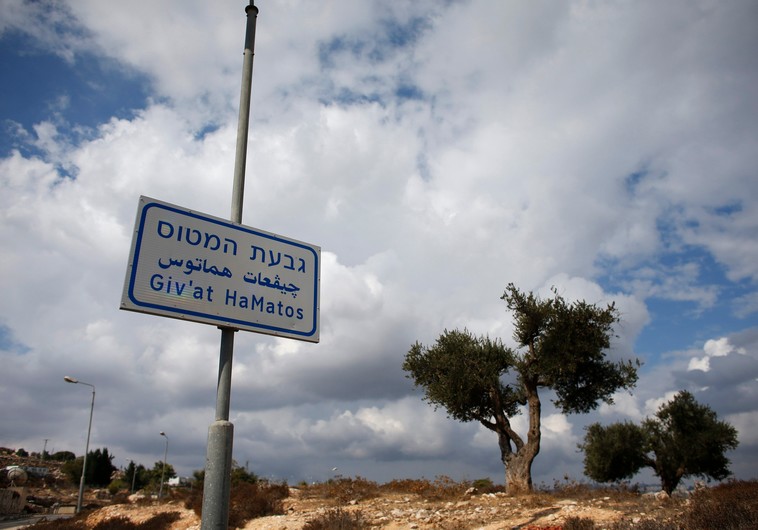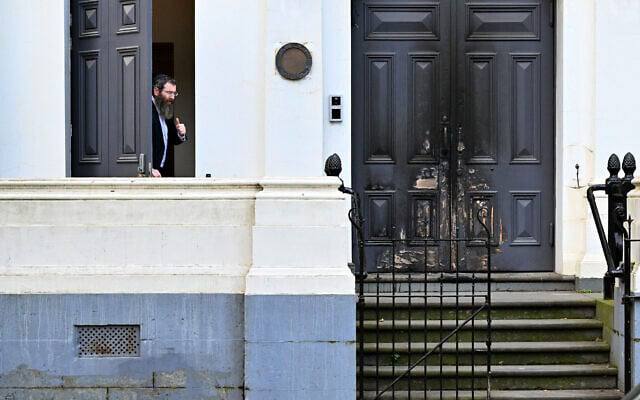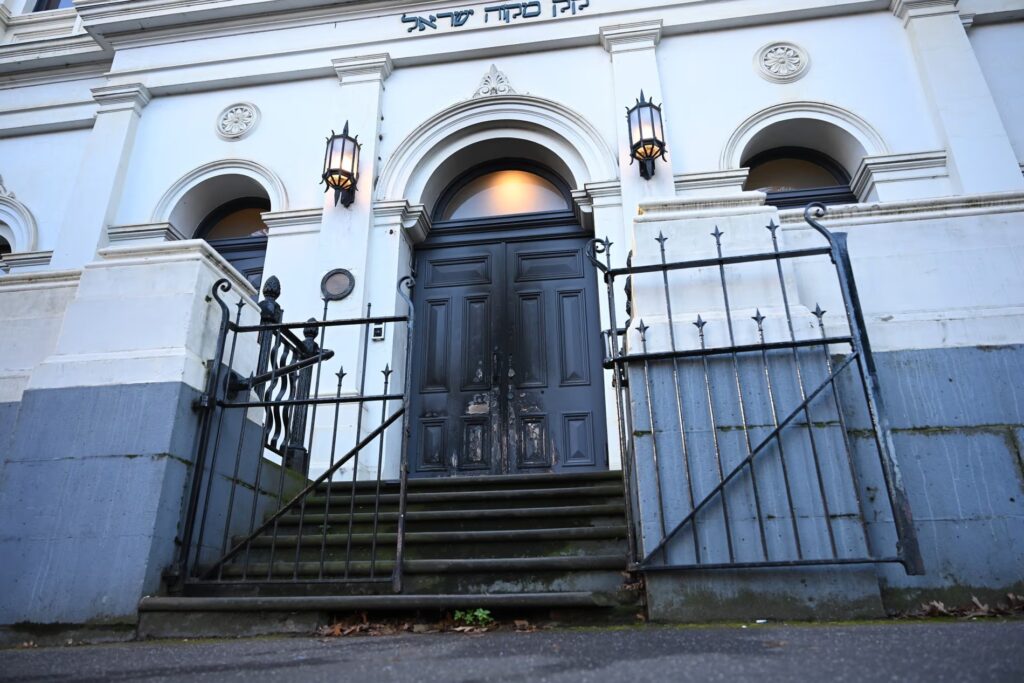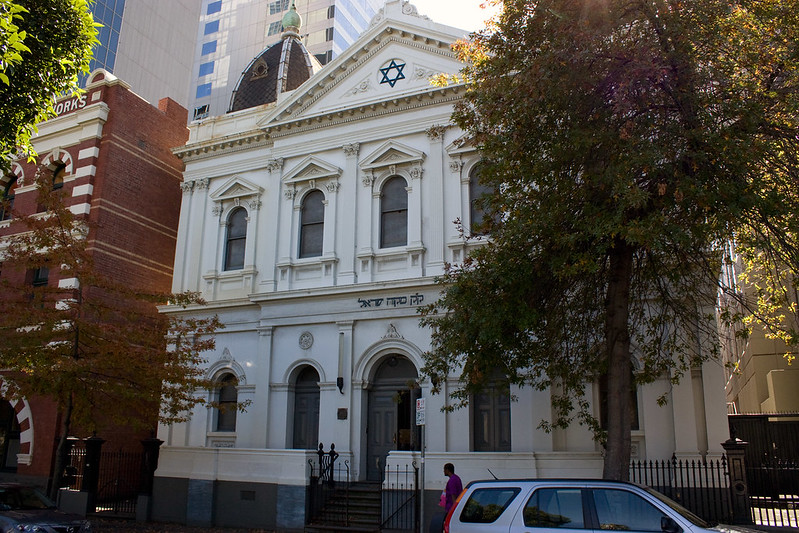UPDATES
Givat Hamatos – the origins and significance of yet another settlement controversy
October 8, 2014 | Gabrielle Debinski and Tzvi Fleischer

Gabrielle Debinski and Tzvi Fleischer
Media coverage of Israeli Prime Minister Binyamin Netanyahu’s meeting with US President Barack Obama at the White House on October 1, was largely dominated by concurrent statements from the White House and US State Department respectively, denouncing an Israeli decision to persevere with the planning of 2,610 housing units in the Givat Hamatos area in east Jerusalem.
This not only detracted from other important issues but also symbolised of dysfunctional and immune from basic factual reality the debate about Israeli settlements has become internationally. The whole Givat Hamatos tempest in a teapot in fact appears to have been based on little more than a bit of political theatre by a left-wing Israeli NGO, which was then seized on by international media, and finally, officially denounced by Washington and other international capitals.
Netanyahu’s meeting with Obama was largely centred around discussions of radicalisation in the Middle East, Iran’s nuclear program and strengthening Israel’s relationship with Arab states – all issues of vital and immediate importance.
But news reports following the meeting focused almost exclusively on the harsh US reprimand of Israel’s alleged planned construction activities in Jerusalem.
Indeed, UN State Department Spokesperson, Jen Psaki, conceded that her language was “strong” when she issued a statement saying:
“This step is contrary to Israel’s stated goal and it would send a very troubling message if they proceed with tenders or construction…[it] call[s] into question Israel’s ultimate commitment to a peaceful negotiated settlement.”
Psaki went on to say, “This development will only draw condemnation from the international community, distance Israel from even its closest allies, poison the atmosphere not only with the Palestinians but also with the very Arab governments with which Prime Minister Netanyahu said he wanted to build relations.”
A nearly identical statement was issued by White House spokesperson, Josh Earnest, soon after Netanyahu and Obama concluded their talks in the Oval Office. Using very similar language, Earnest said “this development will only draw condemnation from the international community…it also would call into question Israel’s ultimate commitment to a peaceful negotiated settlement with the Palestinians.”
In addition to the Givat Hamatos building plans, Washington also expressed criticism, over a second issue related to Jerusalem – the purchase of six existing buildings from their Palestinian owners by Israeli Jews in Silwan, an Arab neighbourhood adjacent to Jerusalem’s Old City.
Yet as Elliot Abrams, a former American National Security Council adviser responsible for Arab-Israel issues, noted, the United States’ reaction was not simply over-the-top, but was essentially a reaction to a non-event prompted by a political stunt orchestrated by an Israeli NGO:
In December 2012, the Jerusalem District Planning and Building Committee announced a major new housing project. In an area of east Jerusalem called Givat Hamatos, 2,600 units would be built. Of some significance, half would be set aside for Jews and half for Arabs. Last week, just before the New Year’s holiday, the deputy mayor of Jerusalem signed an order described as “symbolic,” continuing official authorizations of the work…
This became an international incident thanks to the clever folks at the Israeli group called Peace Now. The fact of the deputy mayor’s action had been in the press but attracted little notice until Peace Now gave it great publicity — timed to coincide precisely with the meeting between U.S. President Barack Obama and Israeli Prime Minister Benjamin Netanyahu this week. This is what led the president to prompt his spokesman to say: “This development will only draw condemnation from the international community. It also would call into question Israel’s ultimate commitment to a peaceful negotiated settlement with the Palestinians.”
The same point has been made Eugene Kontorovich, Professor of International LAW at Northwestern University, who also notes, as AIJAC has previously documented, that the latest brouhaha follows a period of unusual restraint by Israel on construction in settlements – contrary to the impression generally given in the media.
Kontorovich notes:
“The Israeli government has not issued new authorizations for the building of new homes in the “settlements” since before the collapse of negotiations with Mahmoud Abbas. Even Peace Now grudgingly concedes a “semi-freeze.” Yet the absence of new tenders creates a problem for peace processors: they traditionally blame any foot-dragging by Abbas on these tenders, and insist that if Israel desisted, the primary obstacles to fruitful negotiations would be removed…
“Now, lacking new activity to decry, the peace camp seizes on old projects, planned by prior governments, and passes them off as new. This is the story behind this week’s outrage over the Givat Hamatos neighborhood in Jerusalem. The area is one where Jews already live, and immediately abuts the huge neighborhood of Gilo. It is “over” the Green Line by a few meters…
However, this project received final approval in 2012. This week’s outrage is literally a rewarming of the statements from two years ago.”
Kontorovich also notes that this is not the first time Israeli NGOs seeking to use non-events or routine planning processes to gain publicity for their political efforts have managed to garner major international coverage with dubious claims about supposed settlement construction which is not really anything of the sort on close scrutiny:
Unable to blame “new settlement activity,” the peace camp, uncritically parroted by the media, has defined settlements down. Anything is now called “new” settlement activity. Last month, Peace Now treated a surveying decision that certain lands were not owned by private parties–Jewish or Arab–as a massive outrage, though the technical and administrative action would not result in a single hut being built for a single Jew.
Now, lacking new activity to decry, the peace camp seizes on old projects, planned by prior governments, and passes them off as new. This is the story behind this week’s outrage over the Givat Hamatos neighborhood in Jerusalem. The area is one where Jews already live, and immediately abuts the huge neighborhood of Gilo. It is “over” the Green Line by a few meters.
As both Kontorovich and Abrams noted, this planned construction is not a new undertaking, but rather, is part of the routine continuation of a housing project announced by the Jerusalem Planning and Building Committee in December 2012.
Moreover, the plan for construction of more housing units in the east Jerusalem neighbourhood was to benefit Jews and Arabs alike. The Britain Israel Communication and Research Centre (BICOM) reports that the construction plan includes over 800 housing units for the adjacent Arab neighbourhood of Beit Zafafa.
Abrams suggested that the extreme US reaction to this non-event may be prompted by a need felt to “balance” recent criticism of Palestinian Authority President Mahmoud Abbas for his extremely bellicose speech at the UN last week:
“The U.S. administration’s reaction is curious given that this is not new, given that Arabs and Jews will live in this housing, and given the remarkably negative speech that Palestinian Authority President Mahmoud Abbas gave at the U.N. last week. The State Department rejected that speech as “offensive” and “deeply disappointing.” I suppose it’s possible that the president thought this had been too tough, and now wanted to “balance” things with tough words for Israel.”
In the wake of the White House’s rebuke six international media networks interviewed Prime Minister Netanyahu on the issue. He broadly implied that the US had jumped to conclusions with its condemnation, stating, “It’s worth learning the information properly before deciding to take a position like that.”
Importantly, Prime Minister Netanyahu was quick to respond to Washington’s reprimand by a making clear what it is the US is effectively asking for in Jerusalem – especially with respect to the purely private purchase of six buildings in Silwan by Jewish Israelis. He pointed our that the demand Israel do something about purely private transactions like that one amounts to demanding that Israel institute a systemic program of legal discrimination against Jews in Jerusalem – making it illegal for Jewish people to live in or own property in certain areas while Arabs must be allowed to live or own property or live anywhere.
In an interview broadcast on Univison with George Ramos on 3 October, the Israeli PM said he was “baffled” by America’s chastisement:
“This isn’t a settlement. These are neighbourhoods in Jerusalem. If you said to me that in some city in the United States or in Mexico, or anywhere else, Jews cannot buy apartments, there would be an uproar. You know, there’s not only the freedom of property, but the right of every individual to live where they want, as long as they purchase the apartment legally and don’t expropriate, don’t take over, which isn’t the case here. This was a free transaction. So I just want to understand this policy. It flies in the face of American values, and it flies in the face of common sense.”
Jerusalem Mayor Nir Barkat was even more blunt: “I will not freeze construction for anyone in Israel’s capital. Discrimination based on religion, race or gender is illegal in the United States and in any other civilized country. 2,600 apartments in Givat Hamatos that we approved two years ago will enable more young people from all sectors and religions to live in Jerusalem and build their future here, thereby strengthening the capital of Israel. We will not apologize for that.”
Peace is not brought closer by demanding ethnic discrimination – nor by media complicity with political grandstanding by Israel NGOs trying to push their political agenda. Moreover, as Israeli blogger Shmuel Rosner has noted, these NGO efforts to garner international outrage only serve to damage the reputation of the Israeli peace camps amongst Israelis. He wrote:
In fact, it is not unreasonable to argue that the whole Peace Now operation today is geared more toward convincing the world that Israel is at fault than toward convincing Israelis to change their government and their policies. It might even be a logical strategy for the organization: having failed to make Israelis adopt Peace Now policies, the only available venue it found to keep having influence is to take its case abroad. The world can be more easily convinced that Peace Now has the answer and could be relatively easily convinced that Israel is at fault; and it could also – not as easily, but possibly – be convinced to put serious pressure on Israel to change its policies. A change from without – that’s the Peace Now recipe.
Israelis are frustrated with such recipes for two reasons: A. because they feel that there is enough hostility for Israel and enough bias against it even without the contribution of Israeli organizations. B. because they would like to make their own decisions and not be forced by external forces, encouraged by internal dissenters, to adopt policies in which they do not believe.
The international settlement obsession is becoming a political game divorced from factual reality – yet many are being falsely convinced by this game that settlements are the key to solving the Israeli-Palestinian conflict, when the evidence to contrary is overwhelming – see here and here for some arguments why this common assumption makes little sense. Yet non-events – like the continuation of the Givat Hamatos planning approval process – and events which cannot possibly impact the viability of a future Palestinian state – like the legal determination of ownership of a some land in Gush Etzion last month – constantly end up being treated as major international crises.
Until a greater relationship with reality can be introduced into the international debate about Israeli settlements, it can only harm genuine efforts – based on reality as opposed to myths and concocted outrage – to achieve a negotiated two-state peace.
Tags: Israel





